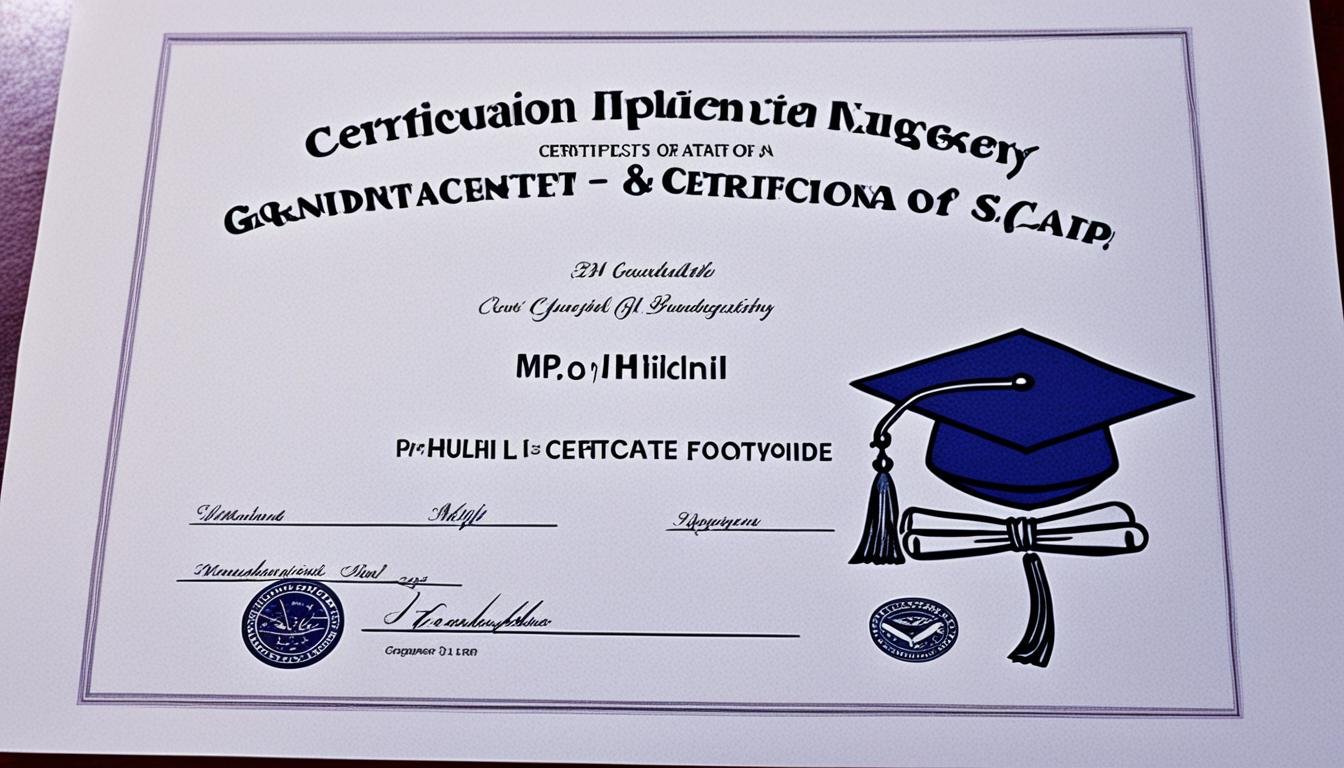Did you know that choosing between a master’s degree and an MPhil can have a significant impact on your future career? While they may seem similar, these two postgraduate study options are designed for different purposes and career paths.
When considering your academic goals and desired career trajectory, it’s essential to understand the key differences between a master’s degree, such as an MSc, and an MPhil. By gaining insights into these distinctions, you’ll be better equipped to make an informed decision that aligns with your aspirations.
Key Takeaways:
- A master’s degree, such as an MSc, is geared towards a career in industry.
- An MPhil is focused on research and serves as a stepping stone to a PhD.
- Master’s degrees provide practical knowledge while an MPhil emphasizes independent research.
- Assessment methods differ, with the MPhil involving a thesis and viva voce examination, while an MSc is assessed through exams and coursework.
- An MPhil is often a precursor to a PhD, preparing students for advanced research or academia, while an MSc is more industry-focused.
What is an MPhil?
An MPhil, short for Master of Philosophy, is an advanced postgraduate research degree. It is a standalone degree which can also serve as a precursor to a PhD program, depending on your academic goals. Undertaking an MPhil allows you to gain specialised knowledge in original research, providing you with a comprehensive understanding of your chosen field.
The MPhil focuses on developing your research skills and honing your ability to address a specific research question within a specialised topic. This degree goes beyond the breadth of a master’s degree, allowing you to delve deeper into your area of interest. It provides you with the opportunity to acquire highly specialised knowledge and expertise.
For those aspiring to pursue a PhD, an MPhil can act as a stepping stone. It serves as a precursor to a doctorate, helping you assess and refine your research skills before embarking on a full-fledged PhD program. This provides a smooth transition into advanced research and academia, where you can explore new frontiers within your area of study.

By choosing to pursue an MPhil, you demonstrate your dedication to acquiring deep knowledge and understanding in your field of interest. The research-intensive nature of this degree equips you with the necessary tools, expertise, and methodologies to contribute to the existing body of knowledge in your specialized area.
Whether you wish to enhance your career prospects in academia, conduct research in a specific field, or pursue a PhD, an MPhil offers a unique opportunity to expand your intellectual horizons and make a significant contribution to your chosen discipline.
Benefits of an MPhil
Undertaking an MPhil can provide several benefits:
- Opportunity to explore a specific research question within a specialized topic
- Acquisition of highly specialised knowledge and expertise
- Development of advanced research skills
- Preparation for further postgraduate research, such as a PhD
With an MPhil, you can become a recognized expert in your field, equipped with the necessary skills and knowledge to excel in academia, research, or industry.
What is an MSc?
An MSc, or Master of Science, is a master’s degree focused on scientific, mathematical, or technology-based subjects. It is typically a one-year course undertaken after completing an undergraduate degree. Unlike an MPhil, which is available in various subject areas, an MSc is mostly offered in STEM (Science, Technology, Engineering, and Mathematics) subjects. The MSc aims to deepen your knowledge in specific topics within your field, focusing on both theoretical and practical aspects of study.

MPhil vs MSc: The Main Differences
When it comes to choosing between an MPhil and an MSc, it’s essential to consider the differences in career paths and program structure. An MPhil is a research-based degree that places a heavy emphasis on independent research, allowing you to delve deep into a specific topic of interest. On the other hand, an MSc provides you with practical knowledge that is applicable in industry, equipping you with the skills needed for a successful career.
One of the key distinctions between the two degrees lies in their assessment methods. In an MPhil program, you will typically be required to undertake a thesis and face a viva voce examination to defend your research findings. This allows you to showcase your ability to conduct rigorous research and contribute to your field. In contrast, an MSc is often assessed through exams and coursework assignments, enabling you to demonstrate your understanding of theoretical concepts and their practical application.
Moreover, the intended career paths for MPhil and MSc graduates differ. An MPhil is frequently considered a stepping stone to a Ph.D., preparing you for advanced research or a career in academia. It is an excellent choice if you have a passion for research and aim to make significant contributions in your field. On the other hand, an MSc degree is more focused on preparing you for industry roles, equipping you with practical knowledge and skills desired by employers.


